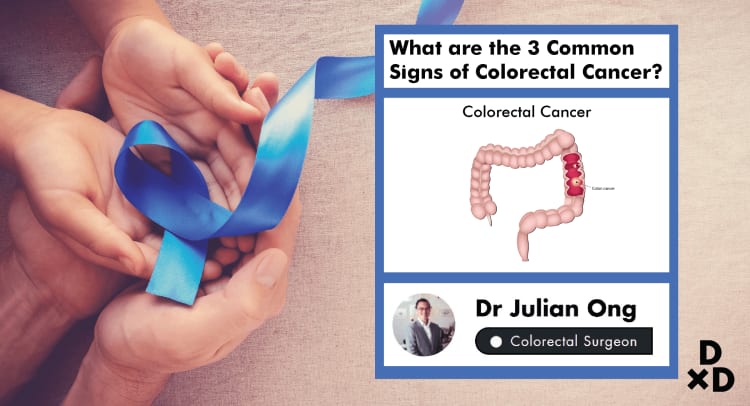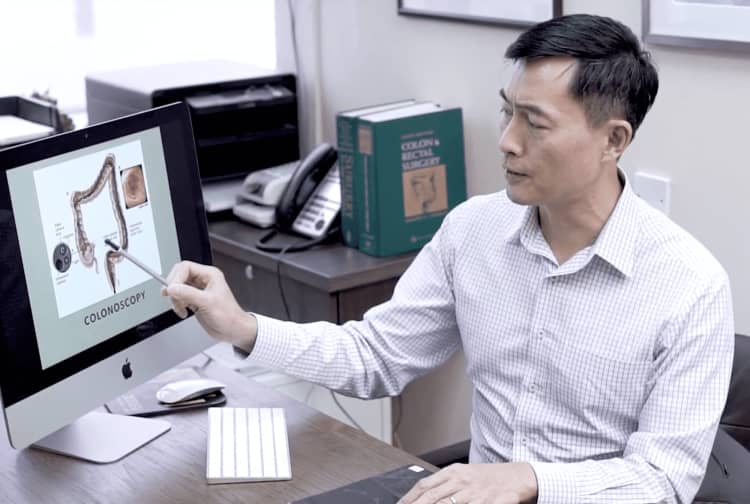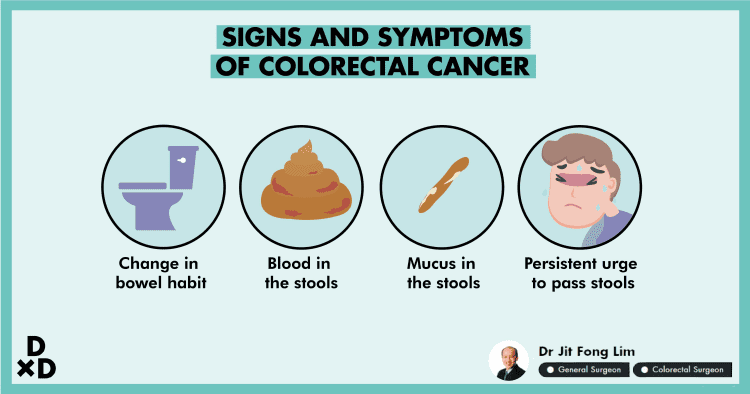Colorectal cancer is one of those cancers that show no symptoms in the early stages. That is also one reason why it is so deadly. In Singapore, around 1200 patients die each year from the disease [1].
To detect colorectal cancer early, getting a routine screening is key. Nevertheless, this article will discuss some signs that you should take note of so you can seek medical attention as soon as possible!
Abdominal pain can be a sign of colorectal cancer!
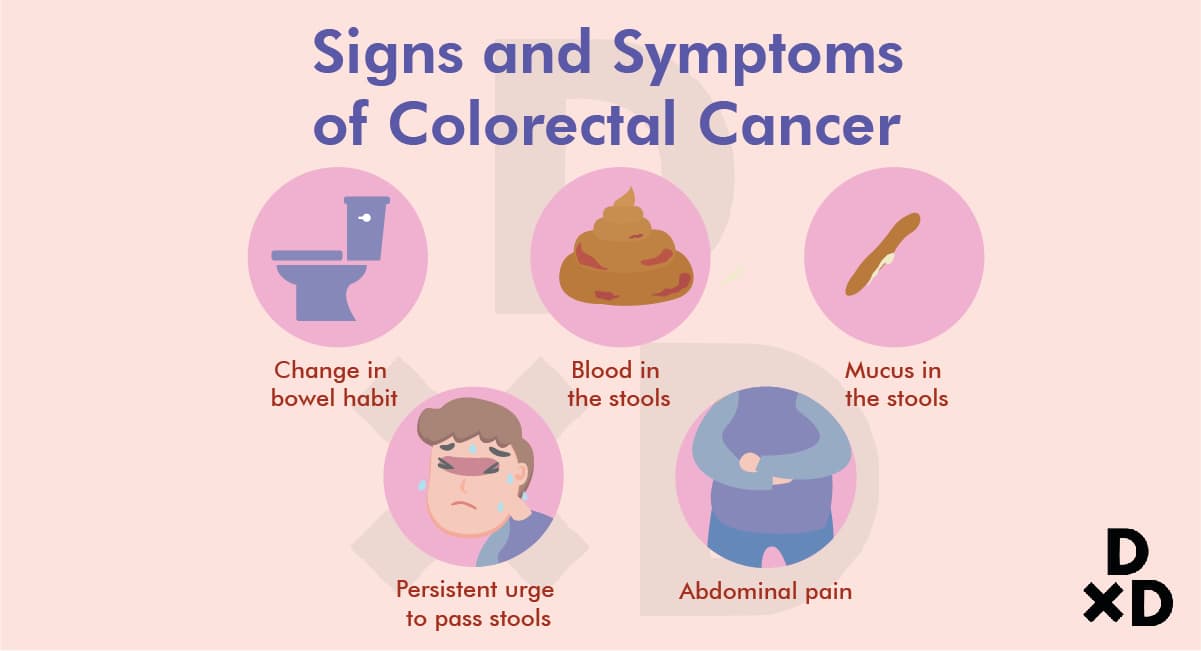
In the early stage, colorectal cancer tends to have no symptoms. The symptoms could also be very generic, e.g. abdominal pain. Thus, colorectal cancer tends to be very hard to catch early.
Colorectal cancer is developed from polyps. Polyps are small tissue growths that dangle from the lining of the colon or rectum. Most of the time there are no symptoms. However, as the polyp grows larger, bleeding may be a symptom.
Rectal bleeding is a red flag
Not all cases of rectal bleeding mean cancer. That said, I highly recommend you get a consultation if you see blood in your stools.
At times, the amount is so little that you cannot see it with your eyes. In medical terms, this is called “occult bleeding”.
That is both a good and bad sign. It may mean that your condition is not severe. The bad thing is that it may continue to get worse [2]. Do visit a specialist to make sure that everything is okay! Be it cancer or not, blood in the stool is not normal.
You should also take note of changes in bowel habits

You should get a consultation if you constantly feel bloated and have a hard time passing stool for more than 2 weeks. This is also true if you feel a constant urge to pass stool but nothing comes out.
As a general guide, if you feel unexplainable changes to your bowel habits, it is best to get a full assessment. Understanding your condition will greatly improve the chances of finding a cure. This is true even if it is not cancer.
Wait, what is colorectal cancer again?
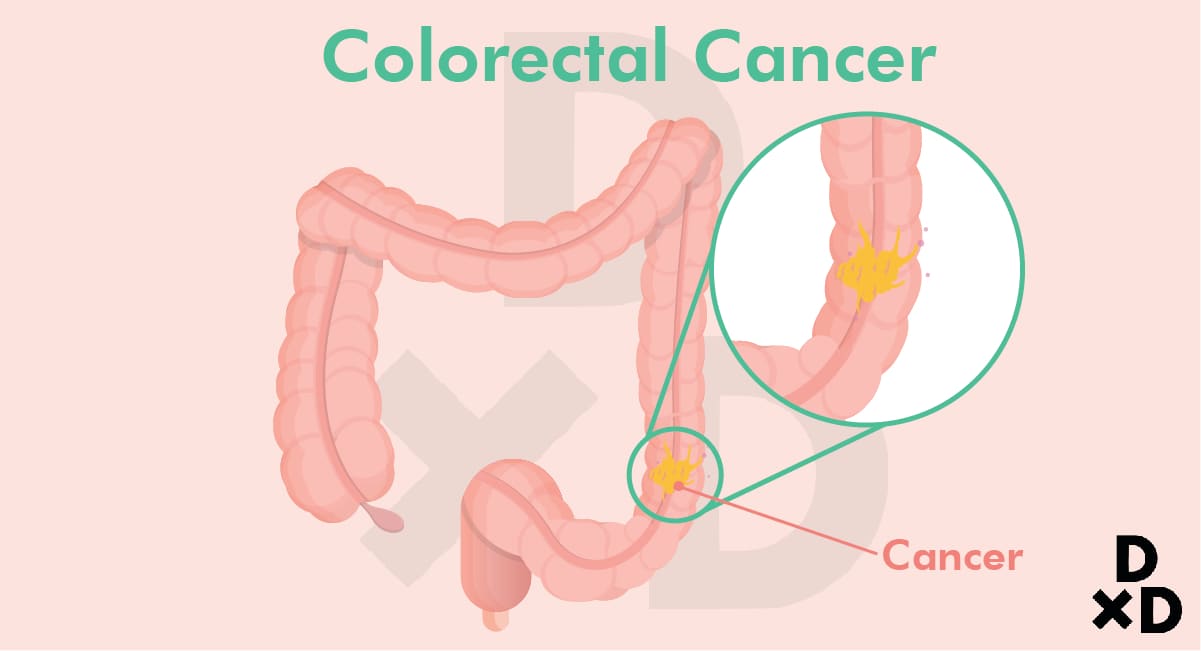
Colorectal cancer happens when there is an uncontrolled growth of cancer cells in your lower intestinal tract. In other words, it refers to the growth of tumours along the colon and rectum.
Colorectal cancer, if diagnosed early, can be cured. However, in the later stages, colorectal cancer can spread to other organs such as your liver.
It can affect both men and women

Since 2016, the number of colorectal cancer cases has not been increasing. That said, colorectal cancer is still the most common cancer in Singapore. Hence, it is ranked first in men, and second in women.
Colorectal cancer is one of the main causes of death in Singapore. I believe this is because it is often diagnosed at a later stage. Data from the National Disease Registry Office found that at least 30% of cases are diagnosed at Stage III while another 25% are diagnosed at Stage IV [3].
What should I do if I experience signs of colorectal cancer?

First things first, I would recommend that you consult a specialist. From there, your doctor will have you take certain tests depending on your condition. One such test is the faecal occult blood test. It is a screening tool to check for the presence of blood in your stool. As mentioned earlier, this could be a sign of colorectal cancer.
You should also consider an endoscopic examination of the colon, also known as a colonoscopy. This is the gold standard in investigating colorectal cancer! On top of giving a view of your colon, it is also used to do a biopsy and remove polyps for further examinations.
For higher-risk patients who are not fit for endoscopy, I would recommend a CT colonography.
Some people are more prone to colorectal cancer
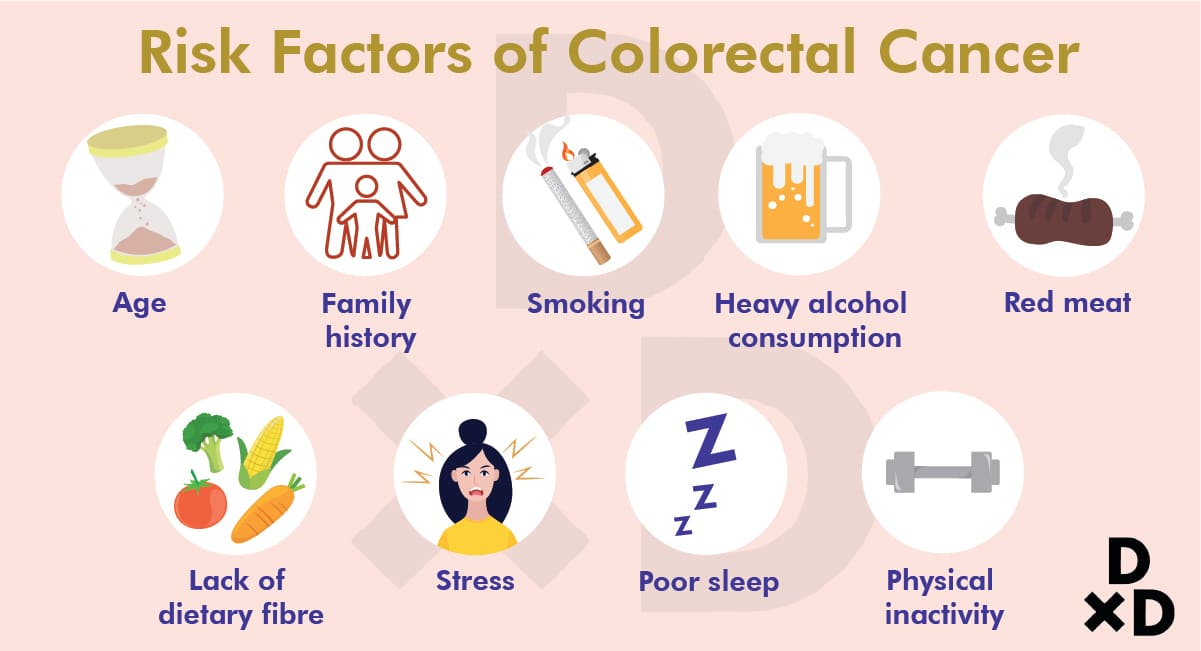
Most of my patients are above 50 years old. This is expected because age is a risk factor of the disease. On top of that, other risk factors include: [4]
- Family history
- Smoking
- Alcohol consumption
- Excessive consumption of red meat
- Lack of dietary fibre
- Stress
- Poor sleep
- Lack of exercise
Now that you know the risk factors, change your lifestyle!
As you may have noticed, some risk factors are actually preventable! I always tell my patients that maintaining a healthy lifestyle is, as cliché as it sounds, the only way to go.
Though there are treatment methods, prevention is still better. The next best thing is an early diagnosis.
I hope that after you have read this article you will be more aware of the changes in your body. You should always pay close attention to what you feel, do, and consume. It’s the small changes that really matter!
%treatmentquote title=Get quote for Colorectal Cancer Screening%
Dr Julian Ong is a colorectal surgeon at Julian Ong Endoscopy & Surgery. His main interest in the area of endoscopy, invasive surgery, and laparoscopic surgery for colorectal cancer.
Read more from Dr Julian Ong in his Q&A here.
Would you like to ask any related health questions?
You can Ask A Doctor right away, or view the complete list of Human Sessions.
